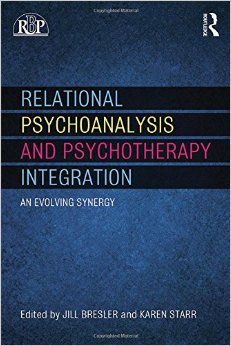Reviewed by Michael Fiorini
Relational Psychoanalysis and Psychotherapy Integration details how psychoanalysis can be integrated with other forms of non-analytical psychotherapeutic techniques. It is comprised of a series of comprehensive research essays written by different authors that all relate in some way to the aforementioned topic, each with its own distinct focus. History, framework, different models of therapy, and specific population modalities are all discussed, as well as a look toward what the future holds for integrative therapies. Each essay is accompanied by extensive research sections, which are aimed at instructing both professional clinical practitioners and researchers. Despite being written by a diverse group of psychology professionals, the tone and format is consistent throughout; although each essay is topical, an afterword serves to integrate the pieces cohesively. As a detailed collection of works on psychoanalytic integration, the book is useful for professionals seeking to implement or learn more about the process and how it might benefit their existing practices.
The primary focus of the book is to detail how psychoanalysis can be integrated with other psychotherapeutic practices. The book also discusses the historic and future applications of psychoanalysis. The book is split into four parts, with the first outlining the conceptual framework of integration. Included here is an introduction to the history of psychoanalysis and how it has changed over time since its early development, discussing the approaches of experimental therapists like Ferenczi and how they took Freud’s original analysis concepts in new directions. The section also discussed a postmodern critique of that integration, as well as discussing an approach to implement assimilative psychodynamic psychotherapy. The next part of the book discusses the integration of multiple psychotherapy models in the clinical setting. Here, integrating CBT and relational psychodynamic psychotherapy is first discussed. An essay on how integration of other forms of therapy models opens up many new avenues of consideration in analysis is then included. Another essay on the conceptual and clinical integration of Zen practices follows this. Nonlinear and dynamic systems approaches to the mind and brain and the integration of neurofeedback within psychoanalytic psychotherapy is covered as well. The section closes with a piece outlining the dynamic linking of the psyche and soma in Somatic Experiencing and embodied mentalization. The book’s third part discusses working with specific populations, with substance abuse and harm reduction techniques, eating disorder approaches, couples therapy dynamics, and dialectical behavior therapy with self-harming patients all detailed at length. The final part discusses the future of integration in therapy from two different perspectives and an afterword.
Readers looking to learn more about how to integrate psychoanalysis with other forms of therapy, differing treatment modalities, and non-analytical frameworks will find Relational Psychoanalysis and Psychotherapy Integration an essential contribution to their existing knowledge. For those working with integrative therapies, the book can be similarly useful in its offering of varied perspectives and approaches to the process. The extensive past and contemporary research included here makes the book valuable for students and researchers who are looking to draw from a wide range of works discussing shifting psychotherapy modalities. That the book is an accumulation of essays on the topic from a number of clinicians who are working in the field today and who use these techniques further adds to the overall clinical efficacy of the book, and is highly recommended for working professionals.
Jill Bresler is a member of the faculty at NYU’s postdoctoral program in psychotherapy and psychoanalysis, and a faculty and advisory board member of the Psychotherapy Integration Program at the National Institute for the Psychotherapies. She is also a private clinical practitioner.
Karen Starr is a private practitioner and author of several books on psychoanalysis. She also works as clinical supervisor at the graduate center at CUNY, as well as adjunct faculty at Long Island University.
Bresler, J. & Starr, K. (2015). Relational Psychoanalysis and Psychotherapy Integration.
New York, NY: Routledge. ISBN: 978-0-415-63981-1.
Paperback. 309 pages. Includes index and references.








